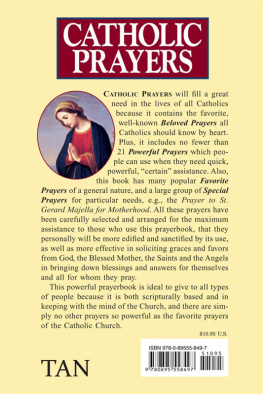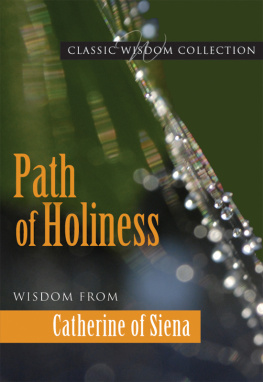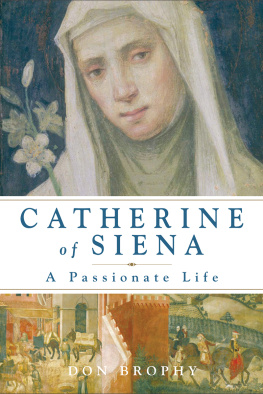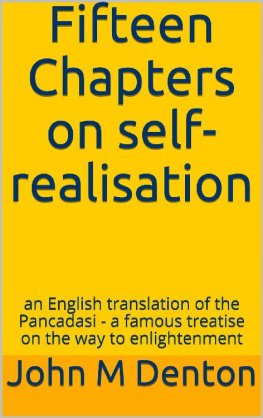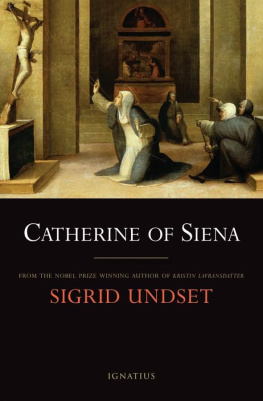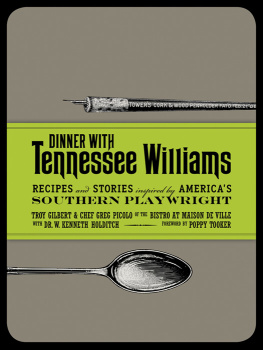ALSO BY JOHN WATERS
Crackpot: The Obsessions of John Waters
Shock Value: A Tasteful Book About Bad Taste
ArtA Sex Book (with Bruce Hainley)
Pink Flamingos and Other Filth
Hairspray, Female Trouble, and Multiple Maniacs
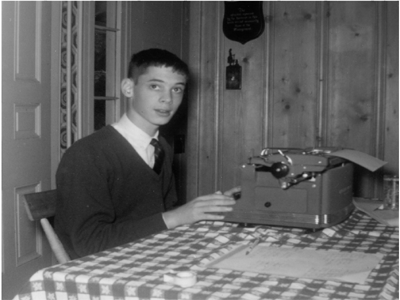
John Waters
Role Models

FARRAR, STRAUS AND GIROUX
NEW YORK
FARRAR, STRAUS AND GIROUX
18 West 18th Street, New York 10011
Copyright 2010 by John Waters
All rights reserved
Distributed in Canada by D&M Publishers, Inc.
Printed in the United States of America
First edition, 2010
Some of these essays originally appeared, in slightly different form and with different titles, in the following publications and webzines: The Kindness of Strangers as the introduction to the New Directions reissue of Tennessee Williamss Memoirs (2006); Leslie in The Huffington Post; and Little Richard, Happy at Last in Playboy.
Illustration credits: pp. 2, 182, and 200: photographs by John Waters; pp. 34, 44, and 272: from the collection of John Waters; p. 94: photograph by Vincent Fecteau; p. 128: photographs courtesy of Eileen Murche; p. 240: courtesy of Peres Projects; pp. 248, 249, 250, and 251: courtesy of Cy Twombly; p. 162: photograph by Mathew Bainbridge.
Library of Congress Cataloging-in-Publication Data
Waters, John, 1946
Role models / John Waters. 1st ed.
p. cm.
ISBN 978-0-374-25147-5 (alk. paper)
1. Waters, John, 1946Sources. 2. Influence (Literary, artistic, etc.). 3. Motion picture producers and directorsUnited StatesBiography. 4. Screenwriters United StatesBiography. 5. ArtistsUnited StatesBiography. I. Title.
PN1998.3.W38A3 2010
791.430233092dc22
[B]
2009042211
Designed by Abby Kagan
www.fsgbooks.com
1 3 5 7 9 10 8 6 4 2
Frontispiece: The young author, 1961, courtesy of Patricia Waters
I N M E M O R Y O F V A N S M I T H
(A U G U S T 17, 1945D E C E M B E R 5, 2006)
C O N T E N T S
I L L U S T R A T I O N S
J O H N N Y A N D M E

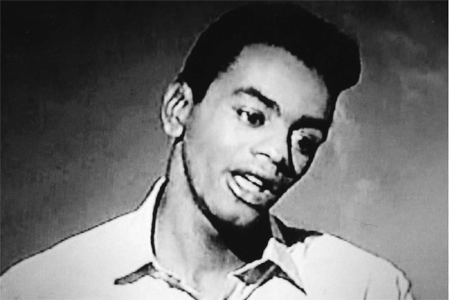
I wish I were Johnny Mathis. So mainstream. So popular. So unironic, yet perfect. Effortlessly boyish at over seventy years old, with a voice that still makes all of America want to make out. Heavenly, warm. Yes, Ill say it out loudwonderful, wonderful. I saw Johnny Mathis in real life once, but he didnt see methe best way to glimpse a role model. I had just pulled into the parking lot of Tower Video, off Sunset Boulevard in West Hollywood, with my good friend the photographer Greg Gorman. Oh my God, said Greg, who is never impressed with celebrities, having shot them for billboards, movie posters, and album covers for thirty years, dont look up, but Johnny Mathis just pulled in next to us. And there he was. In a sports car with the top down and a cashmere sweater tied around his shoulders. Good Lord. Johnny Mathis himself. The legend you never hear about, never see on the red carpet, never read about in gossip columns. Highly successful but nearly invisible. Smooth for ever and ever. As my favorite girl group of the sixties, the Shangri-Las, might have said about how I felt that day, Thats called impressed.
I never got over seeing Johnny Mathis in the parking lot. Id secretly think about those thirty seconds at odd moments, like when the Acela train between Baltimore and New York would have to stop so inspectors could examine the corpses of suicide victims who threw themselves on the tracks. Or waiting in line at the Department of Motor Vehicles to renew my drivers license. Or sometimes right when I woke upbam!for no apparent reason, there hed be: Johnny Mathis in that car with that sweater. Is it because Johnny Mathis is the polar opposite of me? A man whose Greatest Hits album was on the Billboard charts for 490 consecutive weeks. Versus me, a cult filmmaker whose core audience, no matter how much Ive crossed over, consists of minorities who cant even fit in with their own minorities.
Do we secretly idolize our imagined opposites, yearning to become the role models for others we know we could never be for ourselves? When I taught filmmaking at a jail in Maryland in the 1980s, I always got my class to loosen up by doing improv and asking them to play the exact opposite of yourself. If Freud described psychotherapy as transforming hysterical misery into common unhappiness, I figured this might be a revealing way to rehabilitate. Bikers wound up playing girls, blacks chose characters with wealth and power, whites became docile maids or butlers, and child molesters became tough guys. But did I need my own prison counselor because I kept reliving that Johnny Mathis opposite moment? Why would the mere sight of a performer so far outside the standard boundaries of my hero worship launch me into such a blissful, rapturous obsession? At this point in my career, could my misplaced idolatry become a road map to ruin? Was I in danger of becoming a Johnny Mathis stalker? I figured Id better try to meet him in a more legitimate way before I got in trouble.
Its not like I wanted to be Johnny Mathis as a kid. His music, however, did become the sound track for the end of my 1950s childhood innocence. Our thirteen-year-old babysitter, who lived across the street at the time, had a record hop, and because she wanted to borrow my 45 rpm records to play, she had to invite eleven-year-old me. Little did I imagine that the gathering would turn into a red-hot necking party! While her innocent parents (who were good friends of my mom and dad) were upstairs happily laying out refreshments, all the kids downstairs were grinding and French-kissing to Johnny Mathiss music, and I knew then that not only did I want to be a teenagerI wanted to be an exaggeration of a teenager.
But I had always felt nuts, not romantic. Too angry to be smooth. Too happily guilty to yearn for virtue. Before Johnny Mathis, Clarabell, the psychotic clown on The Howdy Doody Show, whose makeup later inspired Divines, had been my role model. The man I saw in person in the early fifties at the height of Howdy Doodys success, when I was just a child and my parents somehow got me on the show. The scary freak I watched from the Peanut Gallery who never spoke but communicated his hostility by honking twin bicycle horns or by squirting you in the face from a seltzer bottle. The same TV character parents complained about for getting their children too excited before dinner. Excited? I was apoplectic. Especially every time Clarabell got near Princess Summerfall Winterspring, the goody-goody but sexy Indian maiden nonpuppet star of the show. If only he could have burst out of his glorious muteness to say her name out loudthe best name ever! The only other name I wish were mine today (except for Lord or Lady Haw-Haw, which I cant use because they were Nazis). Matter of fact, readers of this book, if you see me on the street and call me Prince Summerfall Winterspring in a nice tone of voice, I will probably respond.
I followed the careers of Clarabell and Princess Summerfall Winterspring forever, hoping that I, too, could someday have an extreme career in show business. I mourned the fact that I was unable (and uninvited) to attend the 1957 funeral of Judy Tyler (the actress who played Summerfall Winterspring) after her tragic death in a car accident right before the release of the Elvis movie she had costarred in,


